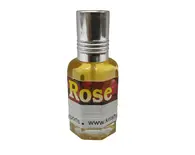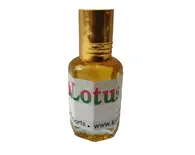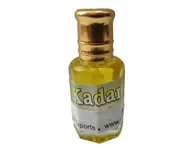The essential oil of sandalwood is extracted through steam distillation of wood from matured sandalwood trees which are 40-80 years old, although 80 years is preferred. The older the tree, the better the oil reserve and stronger the aroma.
As far as quality is concerned, Indian Sandalwood (botanical name Santalum album) is considered the best.
Health Benefits of Sandalwood Essential Oil
Sandalwood oil and the paste of sandalwood is used in medicines, skin and beauty treatments, and numerous industrial products including mouth fresheners, edibles, incense sticks, room fresheners, deodorants, perfumes, soaps, lotions, and creams.
The health benefits of sandalwood essential oil can be attributed to its properties as an antiseptic, anti-inflammatory, antiphlogistic, antispasmodic, astringent, cicatrizant, carminative, diuretic, disinfectant, emollient, expectorant, hypotensive, memory booster, sedative, and a tonic.
Antiseptic
The essential oil of sandalwood is very good as an antiseptic agent. It is safe for both internal and external applications. When ingested, it helps protect internal wounds and ulcers from infections. Similarly, when applied to the skin, it protects wounds, sores, boils, and pimples from developing infections or from becoming septic.
Anti-inflammatory
Both sandalwood paste and its essential oil are very effective as anti-inflammatory agents. A 2016 report published in Journal of Herbmed Pharmacology revealed that sandalwood has a nice cooling effect and that it provides relief from all types of inflammation in the brain, digestive, nervous, circulatory, and excretory systems that result from infections, fever, side effects of antibiotics, poisoning, insect bites, or wounds. Sandalwood essential oil is particularly beneficial in cases of nervous and circulatory inflammations.
Antispasmodic
Being a relaxant and sedative in nature, this oil works great against spasms. A report published by the Department of Biology, Genetics Institute (CGRC), University of Florida, USA, sandalwood oil relaxes nerves, muscles, and blood vessels, thereby ending spasms and contractions. Thus, it is helpful in treating problems associated with them such as cramps, aches, and coughs.
Astringent
Although it is very mild, this essential oil has some astringent properties which induce contractions in the gums, muscles, and skin. A 2010 report titled, Santalum Album Linn: A Review on Morphology, Phytochemistry, and Pharmacological Aspects, reveals that sandalwood oil is known for its astringent properties that make it useful as a disinfectant in genitourinary and bronchial tracts, diuretic, expectorant, and stimulant. This proves beneficial in terms of strengthening the gums. Additionally, it also helps in the strengthening of muscles and tightening of the skin.
Cicatrisant
The essential oil of sandalwood soothes the skin and helps scars and spots to heal much faster. It is an old practice to use the paste of sandalwood as a skin pack. The same effect can be obtained by using this essential oil. This oil is now extensively used in skin care soaps, lotions, and creams.
Carminative
The essential oil of sandalwood, being relaxant in nature, induces relaxation in the intestines and abdominal muscles, thereby facilitating the removal of gases. Also, it prevents excess gases from forming.
Diuretic
Due to its relaxing and anti-inflammatory properties, it soothes inflammation in the urinary system and induces relaxation, thereby promoting the easy passage of urine. It also increases the frequency of urination and the volume of urine. This helps in treating infections and inflammation in the urinary system because it flushes out dangerous toxins through the urine.
Disinfectant
It is the disinfectant property of sandalwood essential oil that justifies its wide use in religious ceremonies and cosmetics. Its fragrance keeps away microbes and small insects, which is why it is extensively used in incense sticks, sprays, fumigants, and evaporators to disinfect large areas. A 2017 report published in the International Journal of Pharmacy and Pharmaceutical Sciences suggests that sandalwood oil, among its many properties, is a disinfectant to mucous membrane in genitor-urinary and bronchial tracts. Moreover, this oil can be mixed with bathing water or other lotions or oils to apply on the skin and wounds to ensure their protection from infections. This oil can also be safely taken with milk to cure internal infections, such as those of the throat, esophagus, stomach, intestines, and excretory tracts.
Skin Care
Sandalwood oil soothes the skin, relieves it from inflammation and irritation, cures infections and keeps you feeling fresh and cool. Dr. Corey Levenson of Santalis Pharmaceuticals, Texas, USA, reveals that sandalwood oil has shown great promise in the clinical trials for the treatment of acne, psoriasis, eczema, common warts, and a severe condition known as molluscum contagiosum.
Treats Coughs
Sandalwood essential oil behaves as an expectorant and is particularly effective in treating coughs. It also fights the viral infections which initially caused the cold, cough, flu, mumps, or any other illness.
Antiphlogistic
As mentioned above, sandalwood oil has antiphlogistic properties and gives relief from inflammation resulting from fever and viral infections.
Lowers Blood Pressure
This is a very useful property of sandalwood essential oil. It can be taken with milk or even water to reduce blood pressure in patients suffering from hypertension. The paste of sandalwood has the same effect when topically applied to various parts of the body.
Memory Booster
It improves memory and stimulates your concentration power. It also keeps the brain cool and relaxed and saves you from undue stress and anxiety.
Sedative Effect
This oil sedates inflammation, anxiety, fear, stress, and restlessness. Furthermore, it induces relaxation, calmness, concentration, inner vision, and positive thoughts.
Health Tonic
This oil can be a very good health tonic for anyone, especially for growing children. Since it is soothing to the stomach and the digestive, circulatory and nervous systems, it helps these systems function in harmony and without any abnormalities.














votes